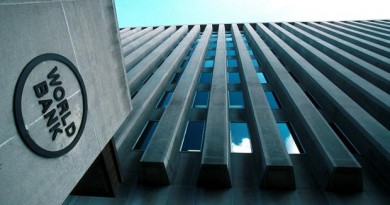CBN directive: Bank shareholders should brace up for no dividend payout
Following the recent directive of the Central Bank of Nigeria (CBN) that Deposit Money Banks (DMBs) and discount houses with huge bad loans and low capital base should not pay dividends to shareholders, some of the nation’s DMBS will not pay dividend for the year ended 31st December, 2017.
As fallout to this directive, many bank shareholders who have been expecting bumper dividend for the financial year ended 31st December may be disappointed.
According to the CBN in the directive which was handed down in a letter dated January 31, 2018, the move was aimed at stemming the tide of rising non-performing loans and the consequent weakening and erosion of the banks’ capital base.
In the letter to the banks and discount houses, which was signed by the Director, Banking Supervision Department, CBN, Ahmad Abdullahi, the regulator said it had observed that rather than grow their capital with retaining earnings, some banks were paying out a greater proportion of their profits, irrespective of their risk profile and the need to build resilience through adequate capital buffers.
As a result, the apex bank barred the DMBs and discount houses with the NPLs above 10 per cent from paying dividends to their shareholders.
The CBN’s minimum NPL threshold for banks is five per cent, meaning lenders’ bad loans should not exceed five per cent of their loan books.
As of September 2017, the banking industry’s NPLs had hit 15.18 per cent.
The level of the NPLs in banks rose by 50 per cent to N2.4 trillion from N1.6 trillion in December 2016, according to the Nigeria Deposit Insurance Corporation’s (NDIC) data.
The CBN sets different minimum CARs for banks in the country: 16 per cent for those it considers to be systemically important; 15 per cent for those with international banking licences; and 10 per cent for the rest.
The circular, which was released to the public on Sunday, read in part, “Globally, retained earnings have been identified as an important source of growing an institution’s capital. Advantages of retained earnings include being a source of long-term finance; being easier and cheaper to raise than external finance; curtailment of financial risks; and improving liquidity and profitability.
“However, it has been observed that rather than take advantage of this beneficial means of capital generation, some institutions pay out a greater proportion of their profits, irrespective of their risk profile and the need to build resilience through adequate capital buffers.”
“In order to facilitate sufficient and adequate capital build up for banks in tandem with their risk appetite, the following directives will now apply:
“Any Deposit Money Bank or discount house that does not meet the minimum capital adequacy ratio shall not be allowed to pay dividend.
“The DMBs and DHs that have a Composite Risk Rating of ‘High’ or a non-performing loan ratio of above 10 per cent shall not be allowed to pay dividend.
“The DMBs and DHs that meet the minimum capital adequacy ratio but have a CRR of ‘Above Average’ or an NPL ratio of more than five per cent but less than 10 per cent shall have dividend pay-out ratio of not more than 30 per cent.
“The DMBs and the DHs that have capital adequacy ratios of at least three per cent above the minimum requirement, the CRR of ‘Low’ and the NPL ratio of more than five per cent but less than 10 per cent, shall have dividend pay-out ratio of not more than 75 per cent of profit after tax.”
“There shall be no regulatory restriction on dividend pay-out for the DMBs and the DHs that meet the minimum capital adequacy ratio, have a CRR of ‘Low’ or ‘Moderate’ and an NPL ratio of not more than five per cent. However, it is expected that the boards of such institutions will recommend pay-outs based on effective risk assessment and economic realities.
“No DMB or DH shall be allowed to pay dividend out of reserves.
“Banks shall submit their board-approved dividend pay-out policy to the CBN before the payment of dividend shall be permitted. All ratios shall be based on financial year averages. This circular takes immediate effect.”
Analysts at Cowry Asset Management Limited said five banks namely Access Bank, FCMB Group, Guaranty Trust Bank, UBA and Zenith Bank out of the 15 banks under its coverage would have unrestricted dividend payouts. They also stated that another five banks would pay out not more than 75 per cent of the profit after tax as dividends.
They explained that only one bank was restricted to a pay-out ratio of 30 per cent, while four banks will not be paying dividends due to their negative retained earnings and accumulated deficit positions.
Also, analysts from CardinalStone Research said that the new amendment gives room for banks with strong capital adequacy ratio to increase their dividend payout ratio to as high as 75 per cent from the initial cap of 30 per cent provided their NPL ratio does not exceed 10 per cent.
They pointed out that the policy is not new and was only amended, saying that the policy has been effective as far back as 2014.




